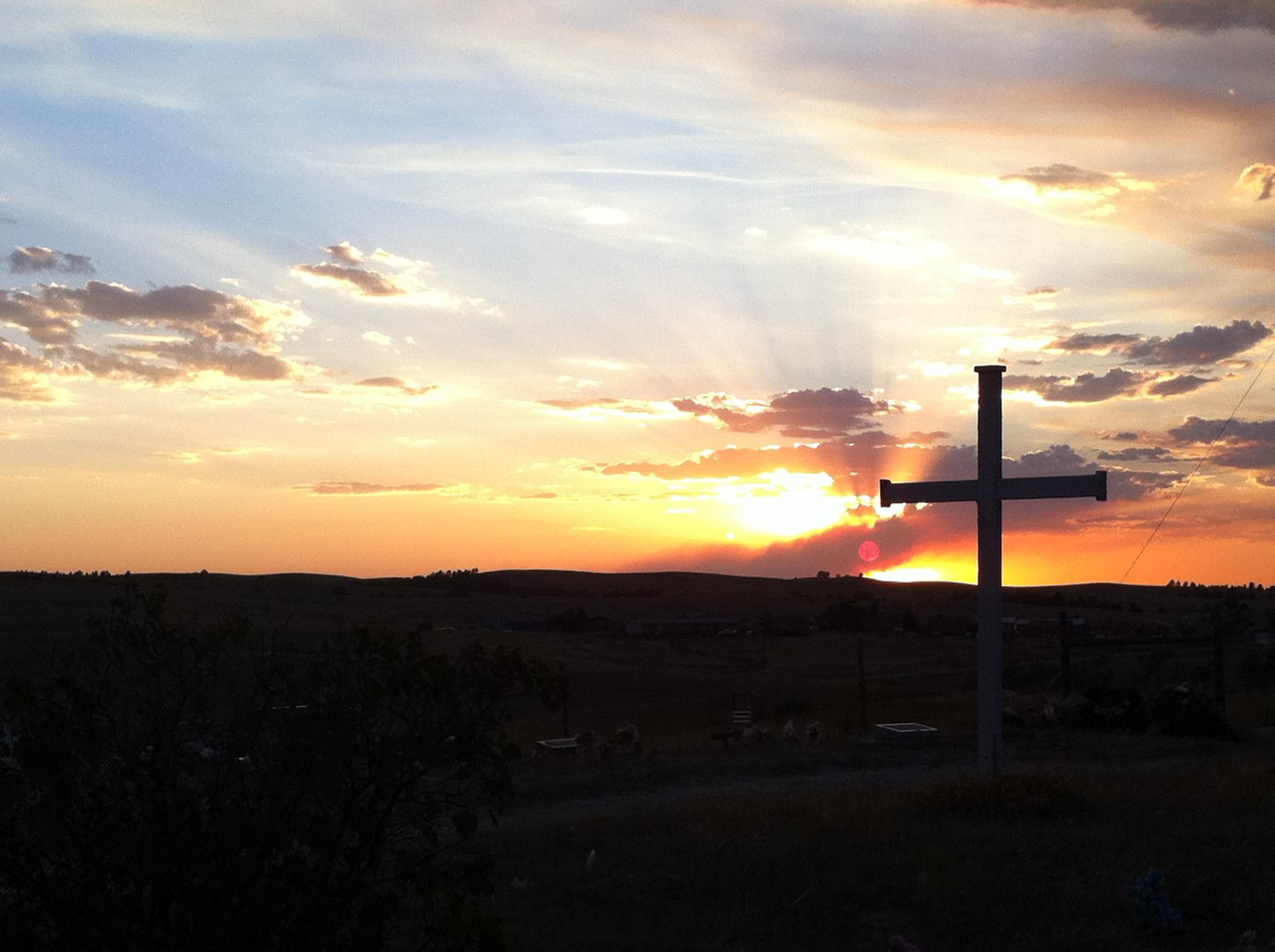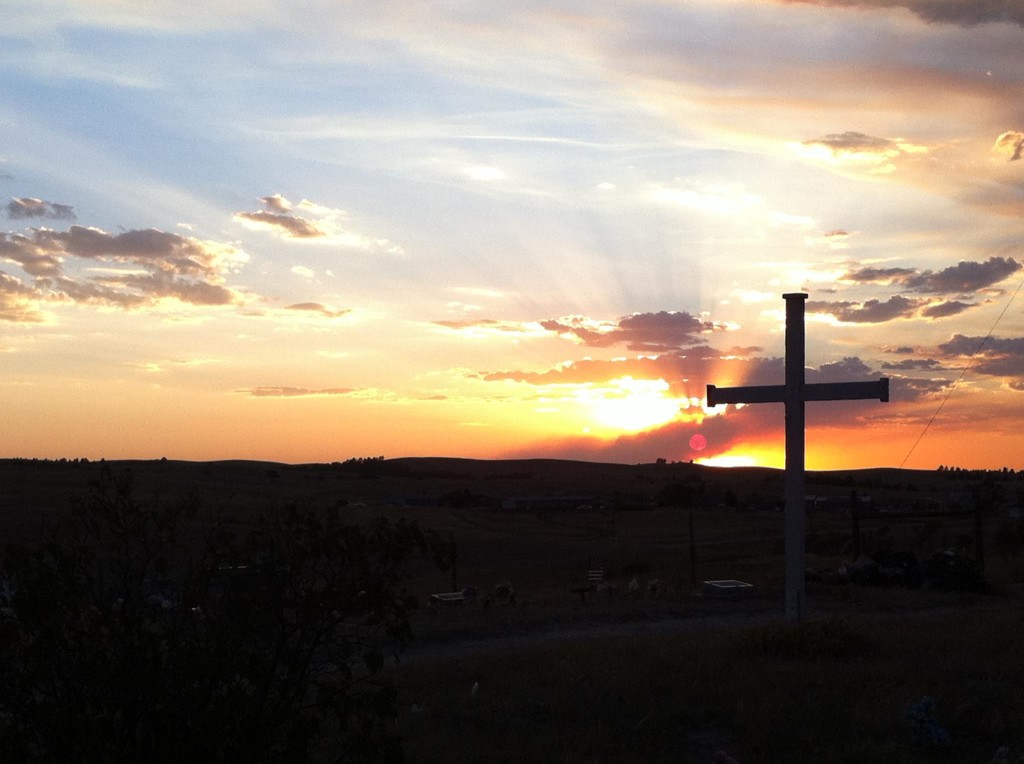1) Diabolical Ventriloquism: A 1-Sentence Summary of Each of Screwtape’s Letters
“In The Screwtape Letters, C. S. Lewis masterfully “teaches in reverse” by wryly using demonic points of view to enforce a biblical one. He calls it “diabolical ventriloquism.” Here is a one-sentence summary of each of Screwtape’s thirty-one letters that advise Wormwood how to tempt his “patient” (who becomes a Christian between letters one and two).”
“What the Puritans saw is that God stirs up our zeal through his ordinary means of grace. Zeal is not a quality available only to those who have identified a secret means of grace or who have been given zeal as a spiritual gift. Zeal is available to all who will simply take advantage of the means God gives us.”
3) The Worst Religion Story of the Year
“While I’m sure I’m now dumber for having read the Daily News article, “Southern Baptists about to ‘plant’ a church in the fertile soil of Brooklyn,” I won’t say that it’s insanely idiotic or that it contains no rational thought. Instead, I’ll follow the lead of Billy Madison and simply say it’s wrong – wrong on almost every conceivable level. From the captions to the quotes, this article sets a new low in local religion reporting.”
4)Is the New Evangelical Liturgy Really an Improvement?
“The simple question I want to ask is this: Is this New Evangelical Liturgy really an improvement?”
“The homeless were to be the guests of honor.”
6) Reasons Men are Opting Out of Marriage
- They’ll lose respect
- They’ll lose out on sex
- They can lose their children and their money
- They can lose their space
- They can lose their freedom
- The single life is better than ever.
7) On Whales and Worship Lyrics
“If I supplied you with a copy of the lyrics to the 6,500 hymns of Charles Wesley, two things would happen to you as you read it. First, you would be deeply moved by the truths the lyrics contained, whether you knew the melodies associated with them or not. Second, you would know your Bible better. Could the same be said if you read through the lyrics of our modern worship offerings?”
8) Are You a Part-Time Church Goer?
“Recent statistics show that an increasing number of evangelicals who are firm in their faith are flabby in their practice of actually gathering with their brothers and sisters in worship. It’s the part-time syndrome, and it can sneak up on any of us.”
This is the fifth part in a series:
- Gospel-Centered Bible Study
- Awe-Inspired Bible Study
- Self-Surrendering Bible Study
- God-Glorifying Bible Study
—–
Anyone who does not love does not know God, because God is love. 9 In this the love of God was made manifest among us, that God sent his only Son into the world, so that we might live through him. 10 In this is love, not that we have loved God but that he loved us and sent his Son to be the propitiation for our sins. – 1 John 4:8–10 (ESV).
Rounding out this five-part series that has taken much longer to finish than originally intended is the subject of God’s love as a motivation for our Bible study. This aspect of the Christian faith is the nuts and bolts, the glue that holds everything together. None of the other pieces would fit together as they do if one thing wasn’t for sure: God is love.
The question is, what kind of love is manifested in God? I think there are two extremes that we can gravitate towards, neither of which is Biblical. The first of these is the view I think most nominal or secular folks would take these days, that is the position that certainly God is loving; by loving they mean he is completely affirming of all of their wants and desires, their lusts and there passions. God essentially becomes the great beach-bum, surfer-dude grandfather in the sky who looks down on his children and says, “As long as everyone is having a good time, I’m happy.” This is destructive and poisonous milk that can destroy growth of faith, and is something I am seeking to address.
The other extreme is for those of us who tend to “intellectualize” the faith. We enjoy reading books and sermons written by 300-year-old dead guys and talking about in-depth topics over a pint. I am certainly guilty of this. What we then tend to gravitate towards is a God who we would say is loving, but we forget to what extreme he is loving, we forget what our response is supposed to be towards that love, and we tend to think of him as more hands off.
My goal is to address a Biblical perspective of God’s love, and how our response to that can fuel our study of God’s Word.
1) God Cares for the Details in Our Lives
When we study theology and read our Bibles often, we tend to magnify the love of God less. I’m not sure exactly why this is. One would think that as we came to study and know God more, our affection would grow for him more and more. Time and time again in my own life and the lives of others, I find it to be the exact opposite. Our knowledge and pursuit of God stops in our heads, and never makes its way into the deep crevices of our soul.
Pastor Paul Tripp calls this the “Danger of Familiarity.” As the months and years go on and we get into a “routine” with our faith, we forget the small things. We forget, as my good friend reminded me of this simple truth a few weeks ago, that “Jesus loves me, this I know.” Two things occur when we get into this mode with our Bible study, we forget that God cares for our needs, and we forget how our love for God is meant to fuel our life and actions.
Look at the birds of the air: they neither sow nor reap nor gather into barns, and yet your heavenly Father feeds them. Are you not of more value than they?…But if God so clothes the grass of the field, which today is alive and tomorrow is thrown into the oven, will he not much more clothe you, O you of little faith (Matthew 6:26, 30)? What a simple and glorious truth are these words of Jesus! Our God is kind, he is loving, and he cares for our most basic needs. He is intimately and deeply involved in our lives. Scripture says he has the hair on our heads numbered. Incredible! Such a foundational truth this is, and yet we often squander this affection from God in vain intellectual pursuits.
It is great and wonderful God loves us in this way, but there is certainly more to God’s love. God’s love is so great, and so perfect, and so much more than we can possibly imagine, that he would descend from his throne and die in the presence of beggars and thieves like you and me to redeem his people. And what is our response from this? Vain debate and thick textbooks? Quoting Spurgeon until we are blue in the face? Beloved, if God so loved us, we also ought to love one another…If anyone says, “I love God,” and hates his brother, he is a liar; for he who does not love his brother whom he has seen cannot love God whom he has not seen. And this commandment we have from him: whoever loves God must also love his brother (1 John 4:11, 20-21). Pastor Tripp also rightly says that we can measure our love for God by the extent to which we love one another.
I think that deserves some repetition: We can measure our love for God by the extent to which we love one another.
Paul (the Apostle, not the Tripp), says if I have not love, I am nothing. Or in the words of my Islam professor, if I am not motivated by the love of God in my study of His Word and service towards others than I am a charade. I have no business reaching out to others, serving them, or sharing my faith with them if I am not deeply motivated by compassion and love for them.
Man, those words cut me deep. How many times have you and I read scripture, or books by the saints, and just came away thinking “Man, thats some good knowledge! Deeeeeeep!” How weak are we? Our knowledge of God, our study of His word, is meant to move us towards compassion and empathy for one another. May this be a call for all of us who are in this trap to turn from this snare we are in and be moved into deep affection by the profound love of God.
2) Sacrificial, Committal Love
Today’s society is so bent on this concept of “love.” I’m afraid there are so many definitions floating around these days that love no longer has any weight. Love is more of a fleeting emotion, like lust and happiness, than it is a deep and committal sensation for another person.
For many people, this concept of love meshes with their ideas about the love of God. God affirms everything about us and where we are. He “meets us where we are”, but then never takes us anywhere. He has no desire over our life except for us to be happy and who we want to be.
This concept of God’s love is not only belittling to the concept of love, but it belittles the creator himself. Surely we must relent that this is a puny and small idea of a loving God!
Let us take a brief survey over Scripture to see the extent of which the Bible says God is loving:
In this is love, not that we have loved God but that he loved us and sent his Son to be the propitiation for our sins. – 1 John 4:10
For one will scarcely die for a righteous person—though perhaps for a good person one would dare even to die— but God shows his love for us in that while we were still sinners, Christ died for us. – Romans 5:7–8
Greater love has no one than this, that someone lay down his life for his friends. You are my friends if you do what I command you. -John 15:13-14
God’s love is absolutely life-changing. You see, God’s love does not simply stop at the cross, a one time saving act that never has any impact on the rest of our lives. God’s love is meant to change every aspect of our lives, he wants to make us into a new creation, continually making us more like himself. As C.S. Lewis says,
Imagine yourself as a living house. God comes in to rebuild that house. At first, perhaps, you can understand what He is doing. He is getting the drains right and stopping the leaks in the roof and so on; you knew that those jobs needed doing and so you are not surprised. But presently He starts knocking the house about in a way that hurts abominably and does not seem to make any sense. What on earth is He up to? The explanation is that He is building quite a different house from the one you thought of – throwing out a new wing here, putting on an extra floor there, running up towers, making courtyards. You thought you were being made into a decent little cottage: but He is building a palace. He intends to come and live in it Himself. -Mere Christianity
The love of God is far greater than anything we can possibly fathom. This love is meant to spur us on to good deeds, not because we have to, but because we want to. This love should spur us on to deeper intimacy with the Sovereign Commander of The Universe, not cause us to be apathetic and not pursue Him at all.
Look at how the Pslamist responds to God’s love through praise in adoration:
Give thanks to the Lord, for he is good,
for his steadfast love endures forever.
Give thanks to the God of gods,
for his steadfast love endures forever.
Give thanks to the Lord of lords,
for his steadfast love endures forever; – Psalm 136:1-3
Love is not an emotion, it is not something that changes on a whim. Love, especially the love of God, is sacrificial and committal. As I detailed in another post, society’s concept of love is vile and insufficient, a meager shadow of the reality of God’s love for us. God has given us everything by giving us himself. He completely, freely, and willingly gave himself for a people who had turned his back on him and rejected him. A people who to this day still turn our backs and reject him.
—–
There is no greater love than the sacrificial and committal love of God our savior. This love should move us towards obedience and service to him.
I don’t know where you’re at when you’re reading this. Maybe you’ve been a Christian for years, and this is a reminder to you for where your heart should be during your study of God’s Word. If you’re like me, you need a reminder like this to get your head out of the clouds and move towards deep compassion and affection.
Maybe you’re not a Christian at all. Maybe you’re not sure what you believe. A good many of you might have been going to church for some time, but the church and its members has wounded you. Unfortunately, the reality is that Christians are no better off than anyone else, the only difference is we are redeemed sinners. We still mess up, and we still cause great harm to others even when we don’t intend to.
Wherever you’re at, I just hope this post was an encouragement and a challenge to you. This is a deep subject that I’ve already gone overboard on, but if you have any questions please don’t hesitate to reach out to me either through comments or the “Contact Me” page.
When I first set out to start this blog, the idea behind it was that it would become the entirety of my thought space as I progress through learning and growing in my studies. While I think I have succeeded to some degree at writing larger, more thought out posts, I would also like to be better at posting more frequent smaller updates as well.
One thing I am going to start trying is an “article round-up” once a week, similar to Tim Challies or Mark Driscoll. The idea behind this is that I’ll be posting my favorite/most influential blog posts and other articles that I’ve read during the previous week. This will hopefully also increase a network with other blog writers as I read and re-post what they are writing.
I’m calling these posts “Sola Wednesdays” (a graphic for this is coming soon), 1) because I am a reformed nerd so it just makes sense and 2) because I am posting these articles on Wednesday alone.
Sound off in the comments below what you think of the new idea!
—–
1) Why I’m Not Overjoyed Our Town’s Adult Bookstore Closed
“So my hunch is that the local adult bookstore didn’t close because the community lost its interest in pornography, but because their interest has gotten worse and more demanding.”
A sad reality.
2) Why are millenials leaving church? Try atheism
“It appears that atheists and Christians are finally working together on the same task: getting millennials to leave the church.”
3) Latin Words and Phrases Every Man Should Know
“Beginning in the 1960s, college students demanded that the curriculum be more open, inclusive, and less Euro-centric. Among their suggested changes was eliminating Latin as a required course for all students. To quell student protests, universities began to slowly phase out the Latin requirement, and because colleges stopped requiring Latin, many high schools in America stopped offering Latin classes, too. Around the same time, the Catholic Church revised its liturgy and permitted priests to lead Mass in vernacular languages instead of Latin, thus eliminating one of the public’s last ties to the ancient language.”
I hope the authors would be proud of my title for these new posts!
4) Reza Aslan Misrepresents His Scholarly Credentials
“It may be that Aslan sensed a tougher interview from Lauren Green than he is accustomed to. Hence he immediately went into high-dudgeon mode, and made the ten minutes all about her alleged disrespect of him and his alleged scholarly credentials. But in order to change the subject he told a string of gratuitous falsehoods about himself. Perhaps that master’s in fiction writing came in handy.”
This interview has been blowing up the internet. Here is the side nobody is talking about.
5) Have Archaeologists Found King David’s Palace?
“Where, then, should we stand on this discovery? On the one hand, we need to be careful not to buy into the speculative sensationalism that we see and read in the news and that, unfortunately, is sometimes purveyed by archaeologists.
On the other hand, we need not fall into the trap of an automatic hermeneutic of suspicion that dominates the field of archaeology. Let us patiently wait for all the evidence of the excavation to emerge. Then we will have a better idea if this is really King David’s Palace.”
While still speculative, I find this type of stuff fascinating.
6) ELCA Has Biggest Split in American Church History
“When the ELCA was formed in 1988 they had 5.2 million members, but they are now down to only 4 million members–a staggering loss of over 1.2 million members, or 23% of their membership. They have also lost 1,500, or 13%, of their congregations, from approximately 11,000 to 9,500. As they “celebrate” this year the 25th anniversary of the ELCA, the fact is that during that time they have lost more members and congregations than make up many entire denominations!”
It is interesting that their attempt to be relevant to culture to “save the denomination” has actually resulted in their biggest decline.
7) 15 Tips on Blogging from John Newton
“Women should be encouraged to blog for the benefit of the entire church, since they naturally write in a style more enjoyable, and less stilted, than men are normally capable of. ‘I have often wished we had more female pens employed in the service of the sanctuary. . . . In the article of essay writing, I think many are qualified to succeed better than most men, having a peculiar easiness of style, which few of us can imitate’ (2:16).”
Every point on this article is very insightful. That one might be my favorite.
8) What One Year of Blogging Has Taught Me
“Don’t compare myself (& my blog) to others. Blogging is discouraging at times. It’s easy to become focused on the number of views, likes, and comments a post gets. In this respect, blogging is a huge challenge for me (and an opportunity for growth with the Lord). I might spend hours crafting a post, only to get few responses and views in the single digits—when this happens, I’m tempted to wonder why I bother. I could be reading or watching Murder She Wrote. But I always remind myself why I’m writing this blog. It’s not to be popular and have lots of views. In the end, I pray that my aim is always first and foremost to glorify and honor the Lord in some way in every post I write. If I keep my eye on that, the stats don’t matter.”
Words from a friend. Well spoken, and very true.
In anticipation of writing a final paper for my Summer philosophy course, I’ve been going back through my course notes. Some things I found useful were some quick thoughts on the question, “Why should Christians study philosophy?”
I think these quick notes and thoughts are helpful and encouraging. These are things I will continue to think about as I pursue Christ with all of my heart and all of my mind.
These were taken from the first day of class with Dr. Stephen J. Nichols, a professor at Lancaster Bible College, adjunct professor at Reformed Theological Seminary and new teaching fellow of Ligonier Ministries. I also found some enlightening pieces of information on sites that operate by selling notes.
1) “Finally, brothers, whatever is true, whatever is honorable, whatever is just, whatever is pure, whatever is lovely, whatever is commendable, if there is any excellence, if there is anything worthy of praise, think about these things.” – Philippians 4:8
The things Paul mentions in this verse are Philosophical categories – truth, honor, justice, love (beauty). Paul commands the Christian to think about and pursue these things.
2) We need to construct our own worldview. We all have a worldview, a context that influences the way we think, interpret the world, and understand our place in the world. As a Christian we have a responsibility not to adopt a worldview, but to construct one and think it through.
3) We need to develop the habit of critical thinking. Our culture is much more receptive than it is critical.
4) We need to foster reflection. Reflection is an art.
5) We need to broaden our world. We can learn from history and missteps.
6) We need places to land – certainty on truth, morality, etc. “Liquid” is a word used to describe our post modern context – there is no place to land, people say we cannot be certain about anything. Christians must have first principles in an age without certainty.
7) We need to love God with our minds. God created us as rational beings –and there is a difference between being rational and rationalism. It is God honoring to do so.
8) Ideas have consequences. How do we help our churches engage ideas? Beliefs/actions/consequences are only the tip of the iceburg. They come from principles/values/beliefs/presuppositions.
9) It can enrich our life. Pop culture is fine and well, but reaching for “top shelf” material and wrestling with it can enrich our lives.



